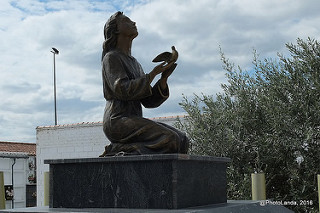The Social Research and Demonstration Corporation (SRDC) is a non-profit organization primarily involved in the design, research, and evaluation of social programs and policies. While SRDC is recognized across Canada and internationally as a leader in the design, implementation, and evaluation of large-scale demonstration projects, they also conduct program evaluation, socio-economic impact analysis, and cost–benefit analysis for a wide range of government and non-governmental organizations, in particular those involved in the delivery of services to economically disadvantaged populations.
They are currently seeking a full-time researcher with a strong/demonstrated interest in applied social research. The successful candidate will contribute to several studies and innovative policy research initiatives in areas such as labour market integration of disadvantaged populations, skills training, adult learning, youth employment, health services, and civic engagement. Location is Ottawa.
Primary Duties and Responsibilities:
- developing research instruments and protocols;
- developing and applying research designs that incorporate behavioural principles and insights;
- supporting the development and evaluation of pay-for-success models;
- conducting literature and document reviews;
- analyzing and interpreting quantitative data; conducting regression analysis;
- data organization and management;
- participating in the design of logic models and evaluation frameworks;
- contributing to presentations and reports on research findings; and
- developing evaluation and research proposals in response to specific client needs.
Qualifications:
- a post-graduate degree in social sciences (with courses in applied research methods) combined with some experience in an applied research environment;
- courses and/or experience in conducting research in behavioural and/or experimental economics is considered an asset;
- strong knowledge of advanced statistical techniques;
- experience using statistical programming tools (e.g., Stata, R, etc.) to analyze microdata files;
- experience designing survey instruments;
- knowledge of evaluation and qualitative research methodologies;
- strong writing and verbal communications skills; ability to present research results clearly and concisely;
- organized, self-motivated and capable of working effectively in a self-directed manner as well as collaborating in a team environment; and
- capacity to work in both official languages is considered an asset.
Interested candidates should submit their resume and a cover letter providing a short description of their research interests and skills, explaining how they relate to SRDC’s mission statement and research priorities. Applicants may be required to complete a research assignment as part of the selection process.
EXTENDED: Please submit applications by December 17, 2017 to:
Elizabeth Rodgers, Director, Human Resources and Corporate Services
Social Research and Demonstration Corporation (SRDC)
55 Murray Street, Suite 400, Ottawa, ON K1N 5M3
hr@srdc.org
photo credit: Travis Estell Rideau Canal Locks via photopin (license)









